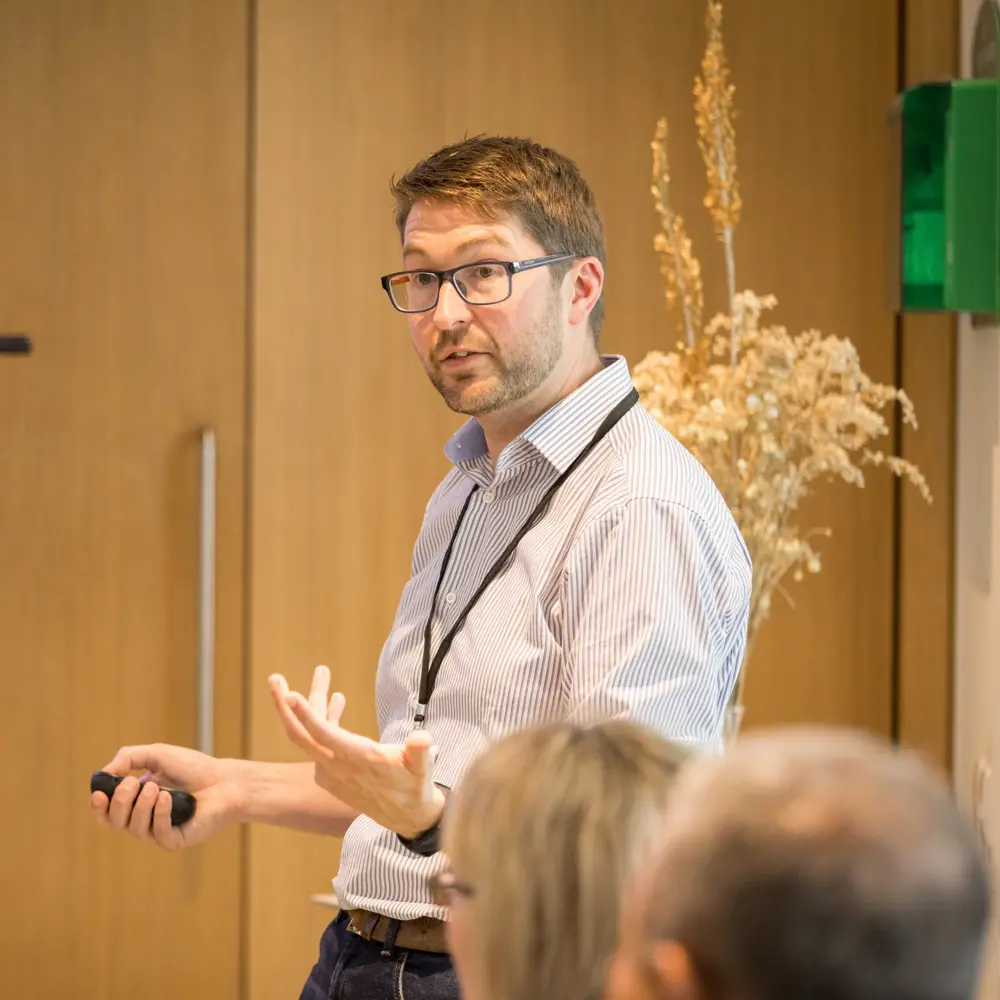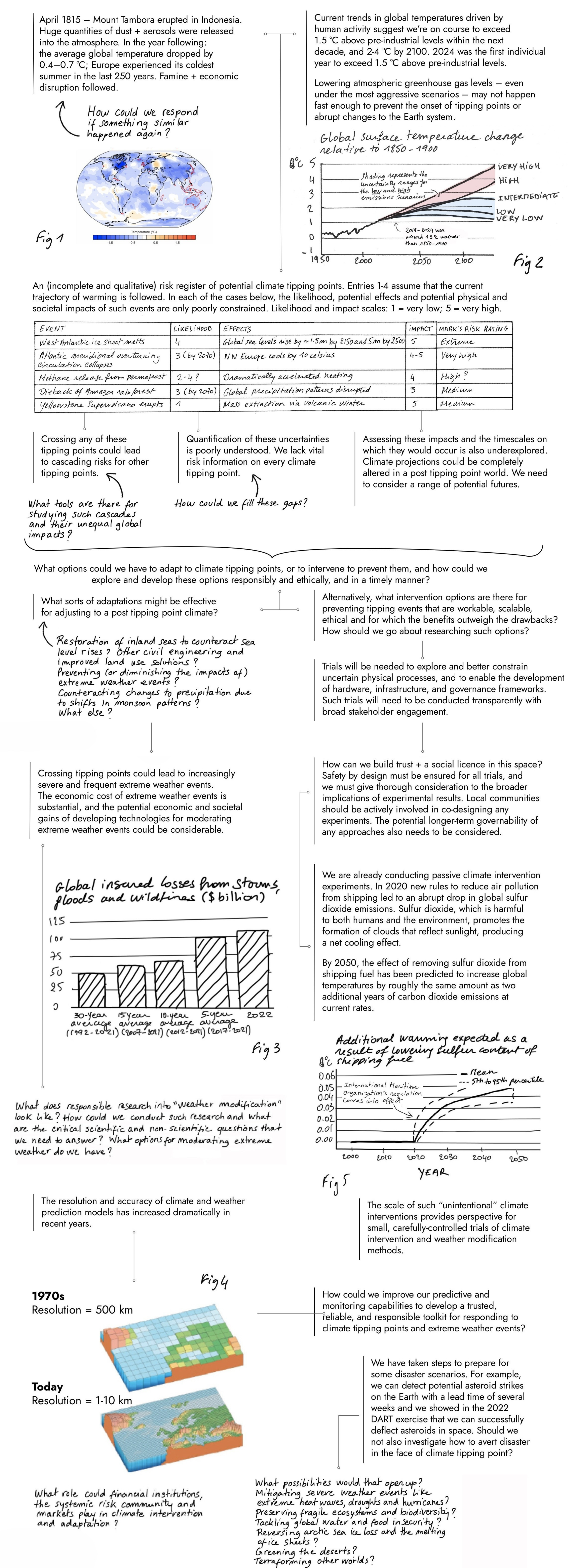What if we could expand our options for adaptation and lay the groundwork for informed choices in a drastically altered climate?
Defined by our Programme Directors (PDs), opportunity spaces are areas we believe are likely to yield breakthroughs.
In Future Proofing Our Climate and Weather, we are undertaking careful and responsible research to understand climate interventions, and whether they could protect the planet and society from climate tipping points.
Beliefs
The core beliefs that underpin this opportunity space:
Climate tipping points (abrupt and potentially irreversible changes to the Earth’s climate) like the melting of large ice sheets or sudden changes in ocean currents have happened in the past. We don’t know when the next one might happen or how long it would take to feel the effects → but we do know that we have very limited options for how we might intervene to avert disaster, or adapt to a drastically altered climate if the impacts manifest on short timescales.
Ethical and governable interventions to prevent tipping points, or adaptations to adjust to a post tipping point climate, could be possible → but an enormous amount of research is needed to determine how such approaches could work and what their regional and global effects might be.
De-fossilisation is imperative; however, the risk of crossing tipping points in the coming decades has led to increasing discussion of climate interventions, such as solar radiation modification. There is a risk that these interventions become prematurely embedded in climate change roadmaps, or dismissed as infeasible, before their basic science has been properly explored → a unique combination of push-pull factors suggests that now is the time for society to undertake responsible and transparent research into our potential options.

Programme: Exploring Climate Cooling
To build a programme within an opportunity space, our Programme Directors direct the review, selection, and funding of a portfolio of projects.
Backed by £56.8m, this programme aims to transparently explore – under rigorous oversight – whether any climate cooling approaches that have been proposed as potential options to delay or avert such tipping points could ever be feasible, scalable, and safe.
Sign up for updates
Stay up-to-date on our opportunity spaces and programmes, be the first to know about our funding calls and get the latest news from ARIA.


